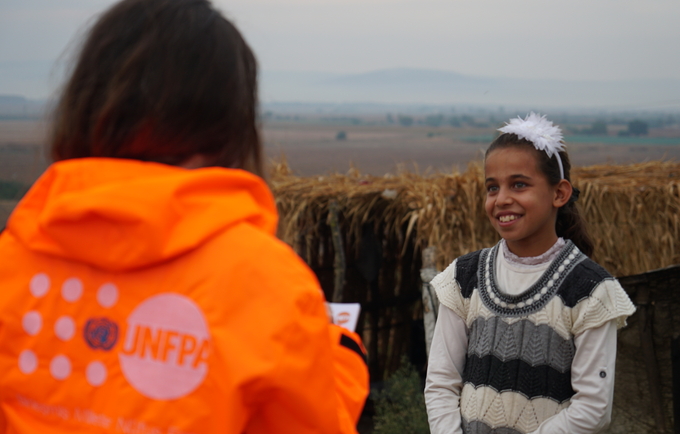Overview
Information about a country's population, growth, characteristics, how and where people live and its physical resources are vital to plan, formulate and implement policy. In order to collect such data, fill in the gaps and do analysis, governments need capacity and skills in demographic and statistical methods.
There have been significant improvements in the collection and analysis of data on population, youth, gender and sexual and reproductive health in Türkiye. However, there is still limited data specific to the most vulnerable populations which hamper the process of development of evidence-based policies and programmes targeting these population groups.
In the context of the 7th Country Programme (2021-2025), UNFPA in Türkiye is working with the Government, universities, civil society, private sector and media in order to provide in-depth data analysis and evidence-based policy formulation on population dynamics, sexual and reproductive health, gender equality and humanitarian issues.
Guided by the principles of the International Conference on Population and Development (ICPD) Programme of Action, ICPD Beyond 2014 Framework and Sustainable Development Goals (SDGs) and targets, UNFPA advocates for, engages in policy dialogue and provides technical assistance in:
(a) reviewing and strengthening legislation and policies on safe motherhood and reproductive health, youth and adolescent health, prevention of STIs (including HIV), mainstreaming women’s issues, violence against women, humanitarian response, and population dynamics (aging, urbanization, demographic dividend and climate change) to include vulnerable groups;
(b) generating data, impact analysis, support to policy development on safe motherhood and reproductive health, youth and adolescent health, prevention of STIs (including HIV), equality of rights, violence against women, humanitarian response and population dynamics, with a particular focus on vulnerable groups;
(c) supporting national institutions and partnerships for evidence-based policymaking, SDG monitoring and reporting;
(d) supporting national institutions and civil society for the promotion of the UNFPA mandate within the SDG agenda;
(e) strengthening multisectoral partnerships, South-South and triangular cooperation and knowledge sharing in the fields of health, women’s empowerment and demographic security;
(f) strengthening financing of the UNFPA mandate through the preparation of costing models, support to SDG financing through partnerships with development agencies and the private sector.
Population Trends
Türkiye is the 17th most populous country in the world (World Bank Population Data, 2019) with a population of around 83 million (Turkish Statistical Institute, 2020). With almost 3 million people living under temporary protection in Türkiye due to the Syria crisis, the total population residing in the country exceeds 86.5 million Ministry of Interior Directorate General of Migration Management, 2020)
The fertility has stabilized slightly over the replacement level; child and infant mortality rates have decreased significantly in Türkiye over the last decade. Although the population growth has also decreased; the total population continues to grow by around one million people each year.
Compared to EU countries, Türkiye is one of the countries with the highest young population. For Türkiye, where 15.6% of its population consists of young people and is in the process of demographic transition, it is of great importance to strengthening the investments made in young people.

